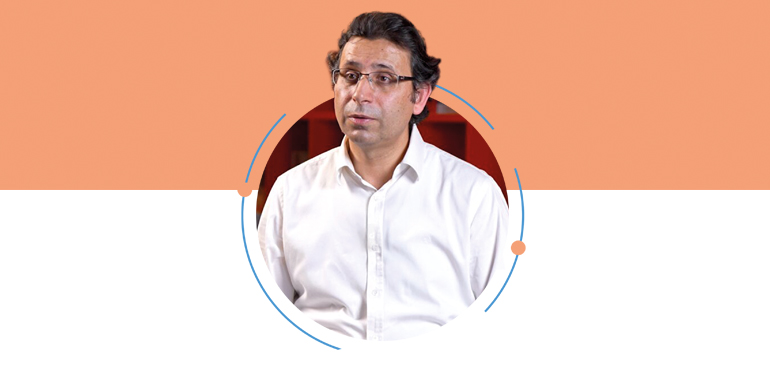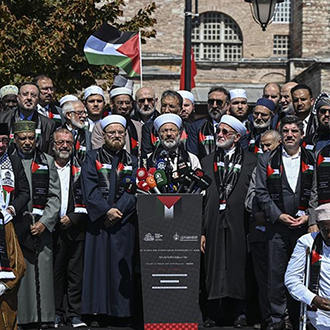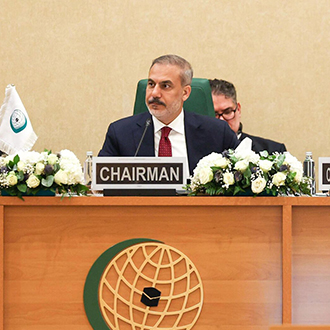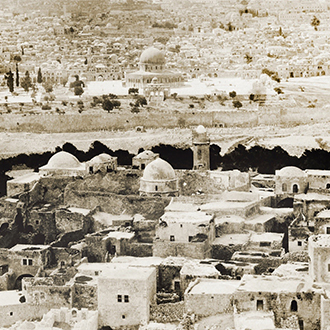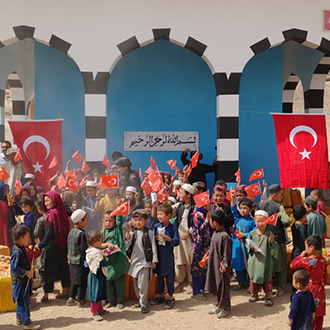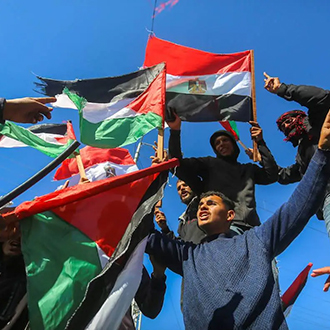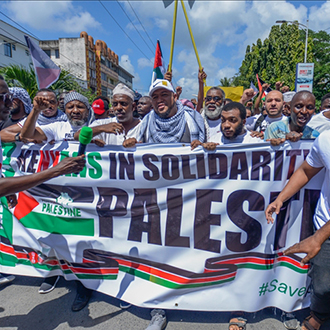He graduated from the Faculty of Theology at Uludag University in 1997. In 1999, he completed his master’s degree at the Institute of Social Sciences at Sakarya University with a thesis titled “Mukatil bin Suleyman’ın Kur’an’ı Te’vil Yontemi” (Muqatil ibn Sulayman’s Method of Interpreting the Qur’an). In 2006, he received his doctoral degree from the Institute of Social Sciences at Marmara University with a dissertation titled “Seyyid Serif el-Cürcani’nin Te’vil Anlayışı: Yorumun Metafizik, Mantıki ve Dilbilimsel Temelleri” (Al-Sayyid al-Sharif al-Jurjani’s Understanding of Interpretation: The Metaphysical, Logical, and Linguistic Foundations of Hermeneutics). As of 2012, he began serving as an Assistant Professor at the Faculty of Theology at Marmara University. He was promoted to Associate Professor in 2012 and became a full Professor in 2017. In addition to his authored work titled “İbn Sina Felsefesinde Metafizik Bilginin İmkanı Sorunu”, (The Problem of the Possibility of Metaphysical Knowledge in Avicenna’s Philosophy), he has contributed numerous articles and translations.
The concept of iradah (will) is defined in lexicons as a person’s freedom to make choices, to prefer one option over another, and to act upon the decisions made. How would you define iradah?
In fact, iradah means “to will” or “to want”. It refers to the act of desiring something. In the Islamic intellectual tradition, the concept of iradah, which has been the subject of extensive debate, is one of the foundational concepts of that tradition. For example, the science of kalam (Islamic theology) emerged out of debates concerning iradah. Iradah expresses a multi-stage process that includes knowledge, a person’s inclination toward the content of that knowledge, and ultimately the decision to act upon it. It involves a mental orientation toward an action or preference, possessing knowledge related to it, developing an inclination toward that knowledge, and finally arriving at a decision either to do or not to do the act in question.
At what point in life does human iradah begin? What are the boundaries of iradah, and to what extent does it reach?
We do not know the exact point at which human iradah begins. Iradah is something we exercise from the moment we become aware of ourselves as human beings. This is because human will is not an acquired attribute. In other words, we do not gain the capacity to will by learning something or by performing a certain act. To be human is to possess will—that is, to have the ability to make choices based on the informational content present in the mind. Our will extends to all of existence that our intellect is capable of comprehending. For this reason, humans will differ from the will of animals. This is also referred to as “ikhtiyar,” a concept that signifies the right to choose. The root of this word, khayr, means goodness or wellbeing. This indicates that, unlike other living beings, human beings possess the ability to distinguish between what is good and what is harmful for themselves. Human beings are creatures capable of directing their will accordingly. Their will extends only to the extent that they act with the awareness of whether something is beneficial or harmful for them, encompassing all realms of existence within the reach of their intellect. Therefore, human beings possess the capacity to choose.
Iradah is one of the most precious blessings that Allah the Almighty has granted to human beings. However, this blessing also brings with it responsibility. What is the role of iradah in fulfilling one’s obligations to their Lord, in adhering to His commands and prohibitions, and in living one’s life as a true Muslim?
We are held accountable due to two fundamental faculties. That is, there are two essential aspects we observe in ourselves that distinguish the human being from other creatures in this world. One of them is the intellect intellect. This is not merely a general consciousness. The human intellect possesses qualities such as knowing, being aware of what it knows, recognizing, and reflecting upon itself and all of existence. At this point, the intellect is no longer simply a faculty for organizing daily affairs. Animals, too, have the capacity to perceive, to know, and to choose in ways that allow them to sustain their daily lives. However, the scope of the human intellect is so vast that it can encompass the entirety of existence. For this reason, the power of human cognition knows no bounds. The more the intellect learns, the more it becomes fulfilled—yet there is no set limit to this fulfillment. Secondly, the human being is a creature capable of contemplating both existence and nonexistence simultaneously. That is, we can reflect not only on our existence but also on our non-existence. We can contemplate our own death, ourselves, and the entirety of existence. Therefore, our intellect possesses the ability to know itself, to discern its place within existence, and to reflect upon itself across the various levels of being. However, accountability does not arise from intellect alone. Responsibility emerges from the conflict between will, intellect, and desire. If there were no conflict between intellect and desire, we could not be beings endowed with will.
What we mean by the conflict between intellect and desire is this: the human being, even after knowing or becoming aware of something, has the capacity to choose based on whether that thing is beneficial or harmful. In other words, one does not merely perceive; one can also choose among available options, one can desire a particular course of action. The question then arises: how do we manage this desire? At times, we may act simply because we derive pleasure from something. Alternatively, we may avoid something because we do not find it pleasurable—we may choose not to act. So I am considering both sides of this equation. If this internal conflict between intellect and desire did not exist, if there were no uncertainty or hesitation in our decision-making, we would not be accountable beings. This is precisely where the human trial lies. The fact that the human being has been chosen for divine trial stems from this very reality: on the one hand, they are beings capable of perceiving and knowing, and on the other, they possess the ability to choose situations that may be either to their benefit or to their detriment whether immediately or in the future.
In the Noble Qur’an, we find many verses that speak about iradah. What aspects of these verses on iradah should particularly draw our attention?
There are three fundamental statements that the Noble Qur’an and the Messenger of Allah (saw) teach us. One of these is the statement centered around tawhid. That is, the matter of Allah’s oneness in His essence, attributes, and actions. The second matter is the relationship between Allah and the universe— more specifically, the relationship between Allah and the human beings. In other words, it introduces us to the nature of Allah’s treatment of His creation. The third is that the Qur’an informs us about the fate of human beings—that is, it tells us what awaits a person in the afterlife, providing us with knowledge of the Hereafter. The message of the Prophet (saw) conveys to us the answer to the question, “What does Allah demand from His servants?” We are beings endowed with will, but religion demands that there be alignment between our will and the will of al-Haqq (Allah). Because we possess will, we live with purpose—we intend certain outcomes. Religion calls for our intentions in both our actions and our abstentions to align with the divine purpose. This is what religion asks of us. Therefore, when we look at the Noble Qur’an, it clarifies the knowledge and principles by which we are to govern our will. The sunnah of the Prophet (saw) clarifies this further. What should draw our attention here is this: the Qur’an teaches us what it means to reason. It explains how this entire cosmic scene was established. The Qur’an tells us what the outcome will be depending on the principles by which we make our choices—what those principles are and how they shape our end. Therefore, among many other things, the Qur’an is also a book of will-training. It is a book that teaches the believers how to discipline their will and under what conditions eternal happiness can be attained. This, in essence, is the key point that warrants careful consideration.
What does Allah advise humankind regarding iradah?
Religion has two dimensions: one is belief, and the other is action. The Qur’an tells us what we must believe, because we direct our actions based on our beliefs. The Qur’an first calls on the human being to cleanse himself of false beliefs and to arrive at tawhid. This is its most essential component. This is not directly about outward actions. The Qur’an aims to instill and firmly establish belief within the human soul, heart, and intellect. Afterward, it requires that these beliefs govern one’s actions. Beliefs cannot, by themselves, directly guide behavior without proper cultivation and understanding. For this reason, the Qur’anic section on belief not only lays out its principles but also demonstrates their application through the life of the Prophet (saw). In essence, the Qur’an calls on us to become individuals whose lives reflect the pleasure of al-Haqq, with the Prophet (saw) serving as the model. Thus, the Prophet’s life represents a practical embodiment of the guidance the Qur’an imparts.
The preservation of the balance between intellect and will is a fundamental necessity for a person to make correct choices. How is this balance described and maintained within the Islamic tradition?
The Prophet (saw) first taught us the balance between tashbih (affirming resemblance) and tanzih (declaring incomparability). In fact, the primary duty of the Muslim ummah is to attain a belief in Allah in which this balance between tashbih and tanzih is properly upheld. The Prophet did not teach us only of an Allah Who is wholly removed from creation. Yes, he made clear that Allah is unlike anything else. While the Qur’an explicitly states that nothing resembles Allah, it also affirms His attributes—such as seeing, hearing, and being pleased. Thus, Islamic belief presents a conception of Allah who is, on the one hand, transcendent and unlike creation (tanzih), yet on the other, described with attributes that draw some analogy to created things (tashbih), though without equating them. This belief teaches us not only a conception of Allah that permeates all aspects of life but also a model of the believer who can withdraw into his inner world and be alone with Allah. In other words, Islam does not present a religiosity that is achieved only through seclusion or withdrawal from society, nor does it teach that religiosity can only be realized through public or social life. The Messenger of Allah taught us a religion that engages with social life, fulfills our individual needs, and at the same time shows us the ways to be alone with al-Haqq in our inner world. This is the balance between intellect and will. The Messenger of Allah brought us a religion of moderation that avoids extremes, and his own life was a reflection of that. Therefore, the balance between intellect and will first appears in understanding, in perception. It spans a wide spectrum, beginning with belief and extending all the way to the most personal matters. Without attaining this balance, one cannot achieve equilibrium in religious practice, and the lived experience of harmony between intellect and will becomes unattainable. The Messenger of Allah (saw) presented to us a religious life that, across this entire spectrum, avoids extremes and emphasizes virtue and moral excellence, encouraging us to focus on them and to ascend in rank through them. This entails the following: First, seeking balance between intellect and will in matters of belief; second, in moral choices; third, in political, economic, and legal decisions; and fourth, in human relationships— our interactions with children, spouses, friends, and companions. There is an ultimate rule to the balance between intellect and will: that Allah and His Messenger take precedence over all else. The core of this balance lies in ensuring that a person’s voice does not rise above the voice of al-Haqq. The primary principle of the intellect– will balance is that Allah is before all things and that everything is to be evaluated in relation to its connection with al-Haqq. This is the essential matter.



